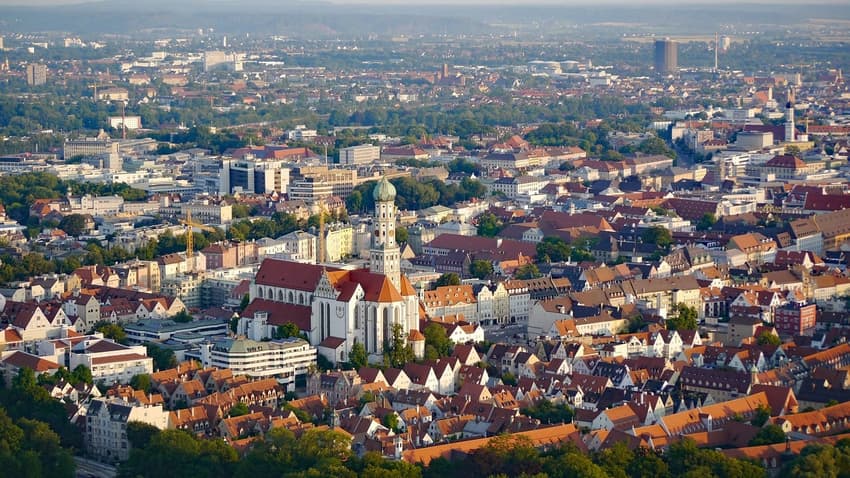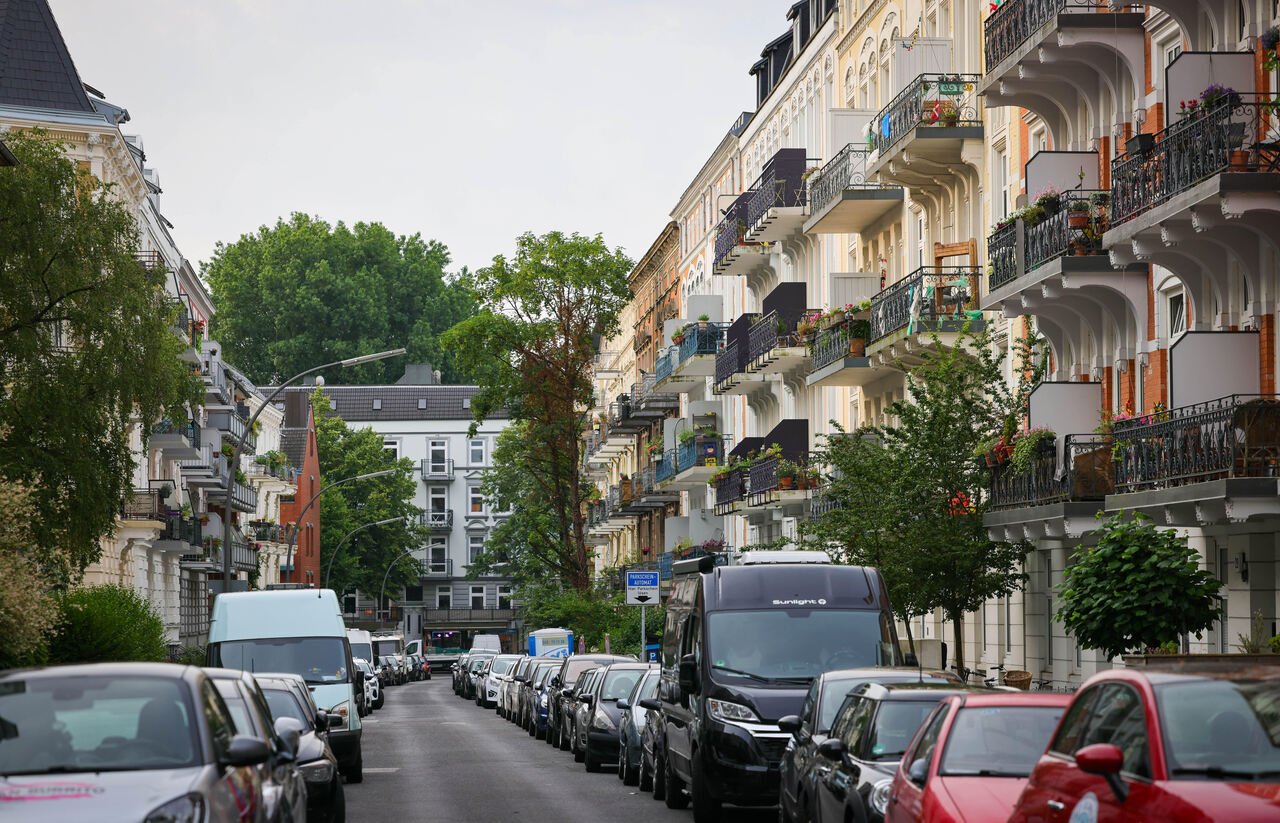'Choose a smaller city': How to find the best place in Germany to move to

Do your homework, have patience, consider heading to an "international" area or opting for a smaller city. This was some of the valuable advice our readers gave on how to find the best place to move to in Germany.
Looking to move? Find your next rental apartment here.
After an InterNations survey found that Hamburg and Berlin were two of the worst cities for foreigners to live in, we decided to conduct our own research.
We asked readers to share their advice on how to find the best places to relocate to in Germany.
Plenty of tips and views were offered, which will no doubt be helpful for those looking to make Germany their home.
‘Do your homework’
Relocating to a new place is never a decision to be taken lightly, as many readers will attest.
In fact, the main takeaway from the dozens of responses we got was to make sure you’ve done your due diligence before deciding on where to call home.
Or as Munich-based 55-year-old Brit, Fiona Sellors says “do your homework well in advance. Go into any move with your eyes open. There will always be pros and cons".
Marcus, a 49-year-old British resident of Berlin had a warning to anyone looking to relocate.
"Don't underestimate how hard it is to find somewhere to live and be sure to have an open mind - it will be difficult to find exactly what you want," he said.
READ ALSO: How the cost of renting compares to home ownership
Wiesbaden-based Ken Lundberg agreed that solid research was paramount. The 70-year-old American advised readers to make sure to ask questions.
Terrence Soverall, from Trinidad and Tobago, had a similar suggestion.
"It’s great to visit the place ahead of time and get a first hand vibe. Get advice from locals,” said the 41-year-old resident of Frankfurt.
"Make appointments for everything in advance."
Chris Benton, a 65-year-old Brit went so far as to suggest multiple visits to the same place are in order.
“Take a lot of long drives and visit locations two or three times at different times of the day,” he said.
‘Do you like city life or village life?’
Another important factor in knowing where to live is knowing what it is you actually like.
Or as Augsburg-based reader Steven Fett aptly put it: “Do you like city life or village life? Do you want to be in a big city? Being in a big city has its ups and downs in Germany. The worst thing is the cost. The best thing is the convenience”.
He suggested readers should find something in the outskirts of a big city to get the best out of both worlds.
On the ‘big cities versus village life’ debate, dual British/German Richard Peach voted against big cities, but offered a caveat to consider when opting for the charms of German village life.

The small German town of St. Andreasberg in Lower Saxony. Photo: picture alliance/dpa | Swen Pförtner
The Dortmund-based 67-year-old said: “Avoid big cities which can smother, but also just because a village is classical pretty, doesn’t mean it is a great place to live."
He also cautioned readers to check how good the public transport is in the area.
READ ALSO: The German regions where property prices are falling and rising the most
'Always choose a smaller city'
Meanwhile, Berlin-based 39-year-old Vivekamanthan R, from India, agreed that multiple factors had to be taken into consideration when making a move.
Vivekamanthan R listed language, community, job opportunities, housing/rent and cultural festivals as important considerations.
“Salary is not a good indicator of a good job. Location, environment, friendliness matter a lot more," they said.
“If you are able to find a job in a smaller city, always choose a smaller city, because the contracts and earnings are largely standardised all over Germany”, said Stuttgart-based Varun Arya.
“Hence, in big cities, you earn almost the same but spend out up to twice more on rent and transportation,” the 36-year-old Indian added.
Another person favouring smaller cities in Germany was Berlin-based Eugene, from Ukraine.
"Don't limit your options to big well-known cities. Never more to a city without a prior visit. Smaller towns in Bayern or Baden-Württemberg seem to be much more family-friendly," he said.
Other considerations voiced by readers included whether or not to live in a typically international city, or have a quieter, potentially more remote experience.
“Live in an international city, as integration with Germans is very difficult," said Helen S, a 56-year-old Brit living in the “stunningly beautiful but desperately lonely” Bavarian municipality Ramerberg.

Residential buildings in the Eimsbüttel district of Hamburg. Photo: picture alliance/dpa | Christian Charisius
'Have patience'
Those with their heart set on living in a big city like Berlin, Hamburg or Munich should be warned: it might take some time to find their dream home.
“Plan ahead and be prepared to be rejected by landlords. It takes time to find a place in one of the big cities,” says Munich-based American Jeff Glasson.
"Don’t expect to find an apartment in a couple of weeks. If all else fails, use a relocation agency to help you. They can be expensive, but really help," the 61-year-old added.
READ ALSO: Germany sees record high rent increases in 2023
A reader in Hamburg gave a similar piece of advice: “Do not expect to get your dream place from the moment you move to Germany. It will take time, energy and money.
"Be a believer, and you will find something at the end of the day,” they said.
Or, as Berlin-based Carla Mortensen from the US said:“Have patience.”
Comments
See Also
After an InterNations survey found that Hamburg and Berlin were two of the worst cities for foreigners to live in, we decided to conduct our own research.
We asked readers to share their advice on how to find the best places to relocate to in Germany.
Plenty of tips and views were offered, which will no doubt be helpful for those looking to make Germany their home.
‘Do your homework’
Relocating to a new place is never a decision to be taken lightly, as many readers will attest.
In fact, the main takeaway from the dozens of responses we got was to make sure you’ve done your due diligence before deciding on where to call home.
Or as Munich-based 55-year-old Brit, Fiona Sellors says “do your homework well in advance. Go into any move with your eyes open. There will always be pros and cons".
Marcus, a 49-year-old British resident of Berlin had a warning to anyone looking to relocate.
"Don't underestimate how hard it is to find somewhere to live and be sure to have an open mind - it will be difficult to find exactly what you want," he said.
READ ALSO: How the cost of renting compares to home ownership
Wiesbaden-based Ken Lundberg agreed that solid research was paramount. The 70-year-old American advised readers to make sure to ask questions.
Terrence Soverall, from Trinidad and Tobago, had a similar suggestion.
"It’s great to visit the place ahead of time and get a first hand vibe. Get advice from locals,” said the 41-year-old resident of Frankfurt.
"Make appointments for everything in advance."
Chris Benton, a 65-year-old Brit went so far as to suggest multiple visits to the same place are in order.
“Take a lot of long drives and visit locations two or three times at different times of the day,” he said.
‘Do you like city life or village life?’
Another important factor in knowing where to live is knowing what it is you actually like.
Or as Augsburg-based reader Steven Fett aptly put it: “Do you like city life or village life? Do you want to be in a big city? Being in a big city has its ups and downs in Germany. The worst thing is the cost. The best thing is the convenience”.
He suggested readers should find something in the outskirts of a big city to get the best out of both worlds.
On the ‘big cities versus village life’ debate, dual British/German Richard Peach voted against big cities, but offered a caveat to consider when opting for the charms of German village life.

The Dortmund-based 67-year-old said: “Avoid big cities which can smother, but also just because a village is classical pretty, doesn’t mean it is a great place to live."
He also cautioned readers to check how good the public transport is in the area.
READ ALSO: The German regions where property prices are falling and rising the most
'Always choose a smaller city'
Meanwhile, Berlin-based 39-year-old Vivekamanthan R, from India, agreed that multiple factors had to be taken into consideration when making a move.
Vivekamanthan R listed language, community, job opportunities, housing/rent and cultural festivals as important considerations.
“Salary is not a good indicator of a good job. Location, environment, friendliness matter a lot more," they said.
“If you are able to find a job in a smaller city, always choose a smaller city, because the contracts and earnings are largely standardised all over Germany”, said Stuttgart-based Varun Arya.
“Hence, in big cities, you earn almost the same but spend out up to twice more on rent and transportation,” the 36-year-old Indian added.
Another person favouring smaller cities in Germany was Berlin-based Eugene, from Ukraine.
"Don't limit your options to big well-known cities. Never more to a city without a prior visit. Smaller towns in Bayern or Baden-Württemberg seem to be much more family-friendly," he said.
Other considerations voiced by readers included whether or not to live in a typically international city, or have a quieter, potentially more remote experience.
“Live in an international city, as integration with Germans is very difficult," said Helen S, a 56-year-old Brit living in the “stunningly beautiful but desperately lonely” Bavarian municipality Ramerberg.

'Have patience'
Those with their heart set on living in a big city like Berlin, Hamburg or Munich should be warned: it might take some time to find their dream home.
“Plan ahead and be prepared to be rejected by landlords. It takes time to find a place in one of the big cities,” says Munich-based American Jeff Glasson.
"Don’t expect to find an apartment in a couple of weeks. If all else fails, use a relocation agency to help you. They can be expensive, but really help," the 61-year-old added.
READ ALSO: Germany sees record high rent increases in 2023
A reader in Hamburg gave a similar piece of advice: “Do not expect to get your dream place from the moment you move to Germany. It will take time, energy and money.
"Be a believer, and you will find something at the end of the day,” they said.
Or, as Berlin-based Carla Mortensen from the US said:“Have patience.”
Join the conversation in our comments section below. Share your own views and experience and if you have a question or suggestion for our journalists then email us at [email protected].
Please keep comments civil, constructive and on topic – and make sure to read our terms of use before getting involved.
Please log in here to leave a comment.